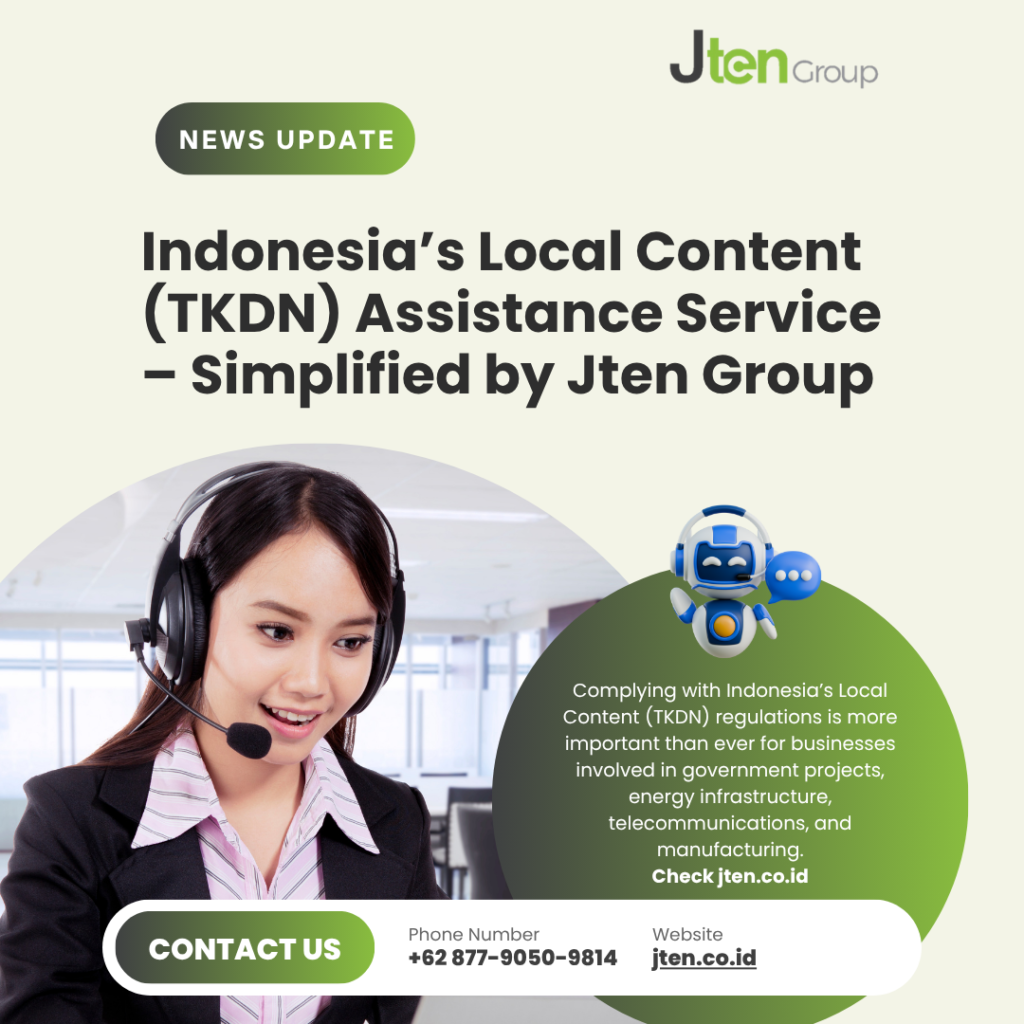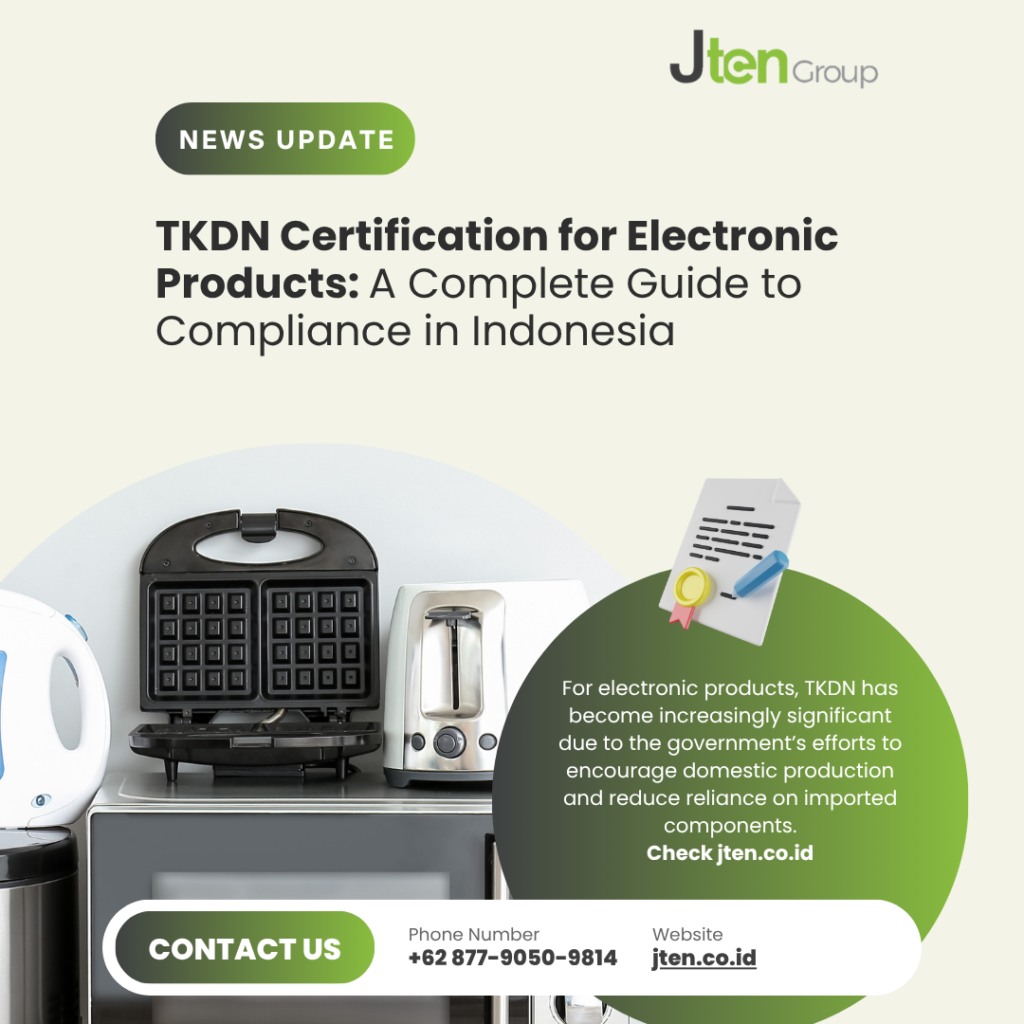Indonesia’s Local Content (TKDN) Assistance Service – Simplified by Jten Group
Complying with Indonesia’s Local Content (TKDN) regulations is more important than ever for businesses involved in government projects, energy infrastructure, telecommunications, and manufacturing. As the Indonesian government pushes for greater use of domestic products and services, having the right support to meet TKDN requirements can be the key to winning tenders and ensuring smooth project execution. That’s where Jten Group comes in — providing expert Local Content (TKDN) Assistance Services to help your business succeed. What is TKDN? TKDN (Tingkat Komponen Dalam Negeri) refers to the percentage of locally made components in goods and services, regulated by the Ministry of Industry (Kemenperin). TKDN requirements are mandated in many sectors to support domestic industries, and non-compliance can result in project delays or lost contracts. To participate in government and BUMN (state-owned enterprises) tenders, companies must often prove that their products or services meet the minimum TKDN threshold. Why Use a TKDN Assistance Service? Obtaining TKDN certification involves: Without expert help, this process can be complex, slow, and error-prone — putting your business opportunities at risk. That’s why partnering with a reliable TKDN assistance provider like Jten Group is the smart choice. Jten Group: Your Partner in TKDN Success At Jten Group, we specialize in end-to-end TKDN support for businesses across Indonesia. From initial assessment to certificate issuance, our consultants work closely with your team to streamline the entire process and ensure 100% compliance. Our TKDN Assistance Services Include: Sectors We Serve: With our deep understanding of TKDN frameworks and strong connections with regulatory bodies, Jten Group ensures a fast, accurate, and stress-free certification process. ✅ Benefits of Choosing Jten Group: Let’s Maximize Your Local Content Compliance Today If you’re preparing for a tender, launching a new product, or ensuring your project meets TKDN obligations — don’t leave it to chance. Get expert support from Jten Group. Our TKDN assistance service will save you time, minimize risks, and help you stay ahead of your competitors. 📞 Telephone / WhatsApp: +62 877-9050-9814 🌐 Website: jten.co.id book your free consultation today!








